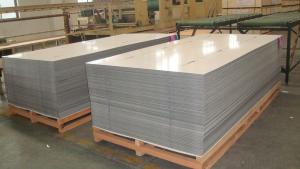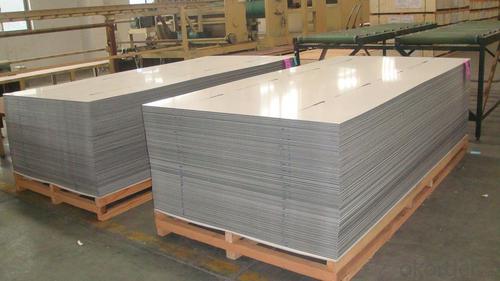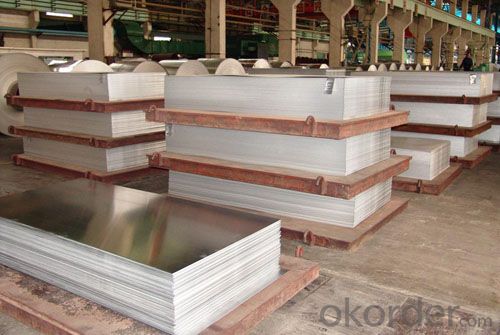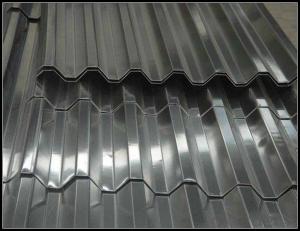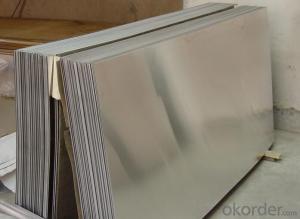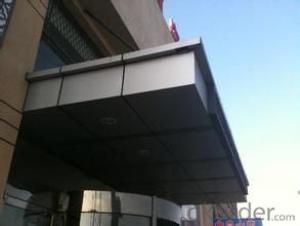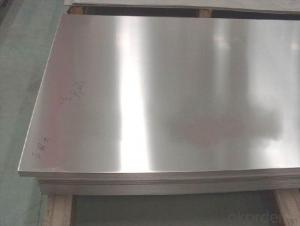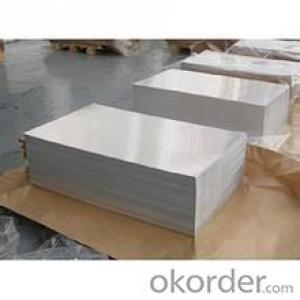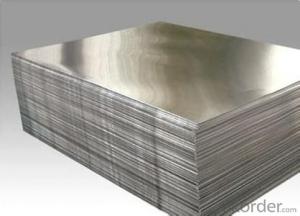Aluminum Gates With Sheets - Mill Finish DC Aluminium Sheet for Mould Making
- Loading Port:
- Shanghai
- Payment Terms:
- TT OR LC
- Min Order Qty:
- 2.5
- Supply Capability:
- 5000 m.t./month
OKorder Service Pledge
OKorder Financial Service
You Might Also Like
Specification
Mill Finish DC Aluminium Sheet for Mould Making
l Product Specification:
Alloy No | 6061 6063 6082 |
Temper | T3-T6 |
Specification | Thickness: 0.2mm-350mm |
Width: 300mm-2500mm | |
Color | Nature color |
Treatment | Hot rolled |
Package | Standard seaworthy export packing: wooden pallets with plastics protection |
Surface treatment | Mill finish,coated,polished,embossed, etc |
Features | High weather resistance \anti scratch anti-corrosion \ easy processing installation\ high brightness |
Application | Mould making |
Payment terms | L/C OR T/T |
Delivery time | Within 20 days |
MOQ | 2.5 metric tons |
l Packaging & Delivery
Packaging detail: Standard seaworthy exporting carton, Wooden pallets, waterproof paper and plastic coverage or as customer's requirement
Delivery detail: about 20 days from received oiginal L/C or advance payment
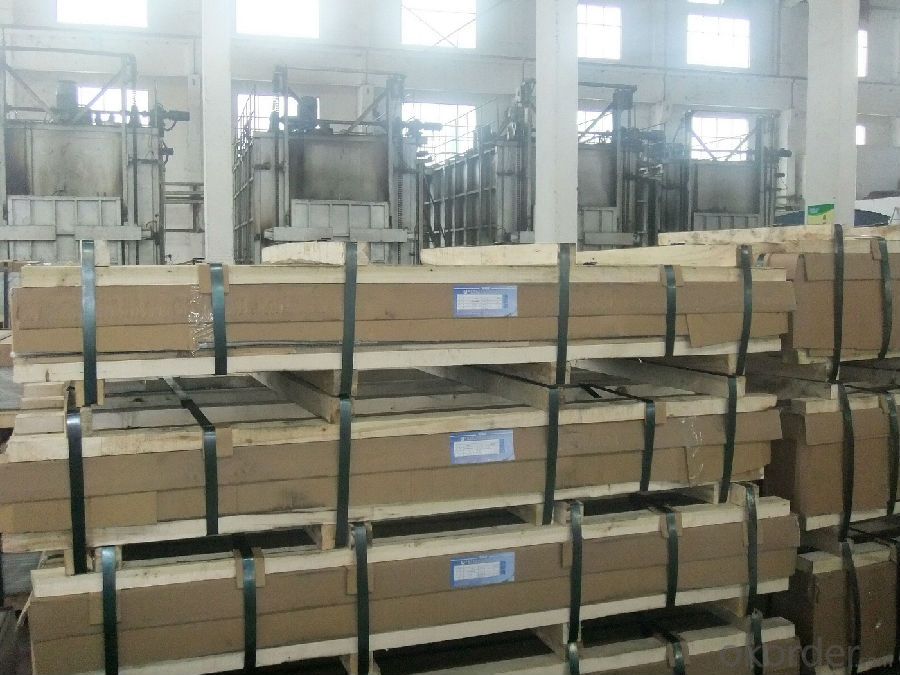
l Company Profile
CNBM International Corporation, China National Building Materials (Group) Corporation, is one of the largest companies in China building material & equipment industry, with 42,800 employees and sales in 2005 of US Dollar 4.395 billion. In 2006, China National Building Material Company Limited was listed on Hong Kong Stock Market with the stock code as 3323. |
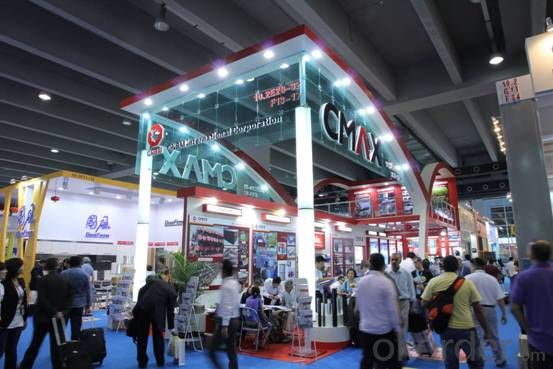
l CNBM World Wide
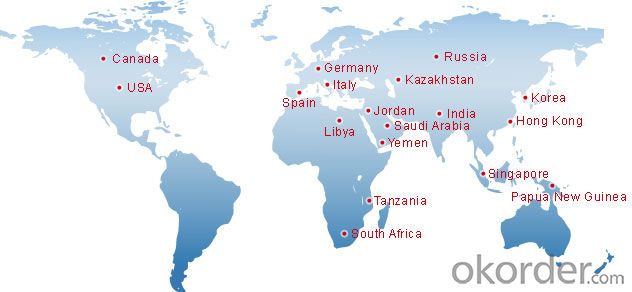
l Product Images
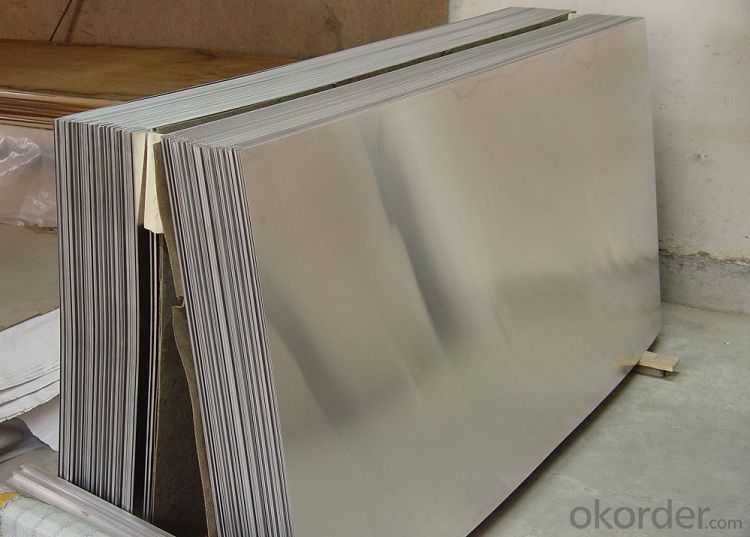
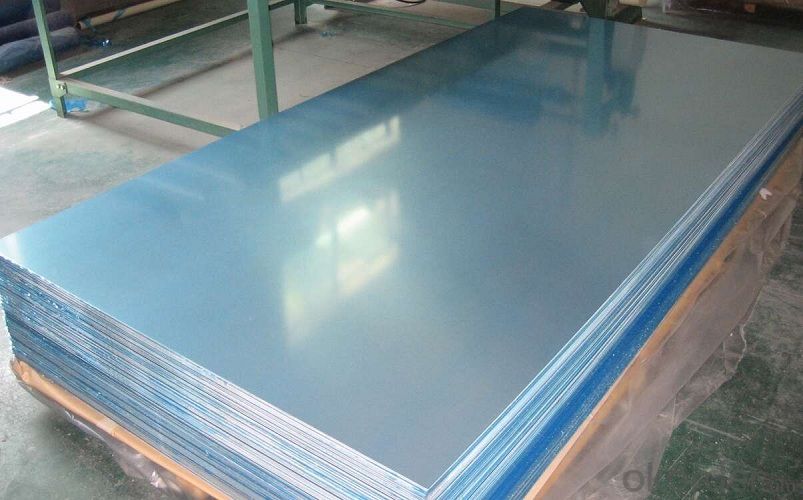
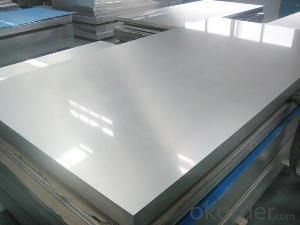
l Certificates
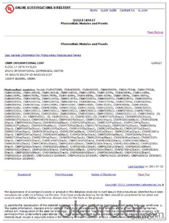
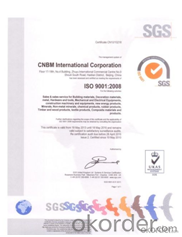
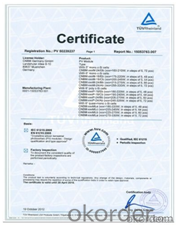
l FAQ
Q: Do you provide free samples?
A: Yes, free samples will be sent to you on freight at destination.
Q: Can I get your latest products catalogue?
A: Yes, it will be sent to you in no time.
Q: What is the MOQ?
A: 2.5 tons
Q: What are your payment terms?
A: We accept L/C, T/T.
- Q: Are aluminum sheets suitable for aerospace structural components?
- Aerospace structural components can indeed be made from aluminum sheets. Aluminum is a material that is both lightweight and durable, and it has been used extensively in the aerospace industry for many years. Its exceptional strength-to-weight ratio makes it highly desirable for a range of applications in aircraft manufacturing. Aluminum sheets provide numerous advantages for aerospace structural components. Firstly, their lightweight nature helps to reduce the overall weight of the aircraft. This is crucial for improving fuel efficiency, increasing payload capacity, and enhancing overall performance. Additionally, the lightweight quality of aluminum sheets makes them easier to handle and assemble during the manufacturing process. Secondly, aluminum exhibits excellent resistance to corrosion. This is particularly important for aerospace applications, as the components are exposed to various environmental conditions, such as high humidity, extreme temperatures, and exposure to chemicals. The corrosion resistance of aluminum ensures that the structural components remain durable and long-lasting, reducing the need for frequent maintenance and replacement. Furthermore, aluminum is a highly malleable material, allowing for easy shaping and forming into complex structures. It can be bent, cut, and fabricated with ease to meet specific design requirements, making it versatile for a variety of aerospace applications. The ability to form intricate shapes with aluminum sheets enables engineers to design efficient and streamlined structures, optimizing aerodynamics and minimizing drag. Another advantage of aluminum sheets is their excellent thermal conductivity. This property enables efficient heat dissipation, which is crucial in aerospace applications where components may be exposed to high temperatures generated during flight or engine operation. The thermal conductivity of aluminum helps to prevent overheating and ensures the structural integrity of the components. In conclusion, the lightweight, corrosion resistance, malleability, and thermal conductivity properties of aluminum sheets make them highly suitable for aerospace structural components. These characteristics contribute to the overall performance, efficiency, and safety of aircraft, making aluminum an ideal material for various applications in the aerospace industry.
- Q: Is it possible to use aluminum sheets for roofing purposes?
- <p>Yes, aluminum sheets can be used as roofing materials. They are known for their durability, lightweight, and resistance to corrosion. Aluminum is also recyclable and can be coated with various finishes to enhance its appearance and performance. It is a popular choice for both residential and commercial roofing due to its low maintenance requirements and long lifespan.</p>
- Q: Describe the process of selecting an appropriate color for an exterior wall made from aluminum sheets.
- <p>Choosing a suitable color for an exterior wall made of aluminum sheets involves considering several factors. First, think about the architectural style and the existing color scheme of the building. Neutral colors like white, gray, or beige are versatile and can complement most designs. Consider the local climate; lighter colors reflect heat and are suitable for hot climates, while darker colors can absorb heat, making them ideal for cooler regions. Factor in the environment and surroundings; colors that blend with the natural landscape can create a harmonious look. Additionally, consider the maintenance and durability of the color, as some may fade or show dirt more easily. Finally, consult with an architect or designer for professional advice tailored to your specific project.</p>
- Q: How do aluminum sheets perform in terms of weldability?
- The weldability of aluminum sheets is generally good because of their low melting point and excellent thermal conductivity. Various techniques, such as TIG welding, MIG welding, or spot welding, can be used to weld aluminum sheets. However, there are a few factors that can affect the weldability of aluminum sheets. First, it is necessary to ensure that the surface of the aluminum sheet is clean and free from contaminants like oil, grease, or oxide layers. These contaminants can have a negative impact on the weld quality. Therefore, it is crucial to clean and prepare the surfaces to be welded properly. Second, aluminum sheets have a high thermal conductivity, which means that heat dissipates quickly. This can make it difficult to control the temperature during the welding process. To ensure a successful weld, it is important to have a skilled and experienced welder who can adjust the welding parameters accordingly. Lastly, aluminum sheets have a high coefficient of thermal expansion, which can result in distortion or warping during welding. To minimize these issues, techniques such as tack welding or clamping may be used to hold the sheets in position. In conclusion, aluminum sheets generally have good weldability due to their low melting point and excellent thermal conductivity. However, achieving high-quality welds and avoiding potential issues like contamination, distortion, or warping requires proper surface preparation, skilled welding techniques, and careful temperature control.
- Q: Are aluminum sheets suitable for industrial machinery?
- Industrial machinery can utilize aluminum sheets effectively. Aluminum is a versatile material that finds extensive usage in various industries, including machinery and manufacturing. Aluminum sheets possess several advantages, making them a suitable option for industrial machinery. To begin with, aluminum sheets have a lightweight characteristic. In comparison to metals like steel, aluminum boasts a significantly lower density. This attribute makes it ideal for applications where reducing weight is crucial. The lightweight nature of aluminum simplifies the handling, transportation, and installation of machinery components, resulting in enhanced efficiency and reduced costs. Additionally, aluminum sheets exhibit high resistance to corrosion. The formation of a natural oxide layer on the surface of aluminum acts as a protective barrier against corrosion. This corrosion resistance makes aluminum sheets suitable for industrial machinery, particularly in environments prone to moisture, chemicals, or harsh weather conditions. Furthermore, aluminum sheets possess excellent thermal conductivity. This property allows aluminum to swiftly and efficiently dissipate heat, rendering it suitable for applications involving machinery components that generate substantial heat. By effectively managing heat, aluminum sheets aid in averting overheating and extending the lifespan of machinery. Moreover, aluminum sheets are easily malleable and can be fabricated into various shapes and sizes, making them adaptable to diverse machinery designs and requirements. They can be effortlessly machined, welded, and joined, facilitating seamless integration into manufacturing processes for industrial machinery. Lastly, aluminum is an environmentally friendly and sustainable material. It is entirely recyclable without compromising its properties, thus minimizing the environmental impact associated with the production and disposal of industrial machinery. In conclusion, aluminum sheets are a fitting choice for industrial machinery owing to their lightweight nature, corrosion resistance, thermal conductivity, formability, and sustainability. These attributes make aluminum sheets an excellent option for a wide range of applications in the machinery and manufacturing sectors.
- Q: Can aluminum sheets be used in automotive applications?
- Yes, aluminum sheets can be used in automotive applications. Aluminum is lightweight, corrosion-resistant, and has good strength-to-weight ratio, making it an ideal material for manufacturing automotive components such as body panels, engine parts, and structural components.
- Q: What is the electrical resistivity of 101 aluminum sheets?
- The electrical resistivity of 101 aluminum sheets can vary depending on the specific grade and condition of the aluminum. However, on average, aluminum has an electrical resistivity of about 2.65 x 10^-8 ohm-meters. It is important to note that this value may slightly vary due to impurities or other factors.
- Q: What are the different grades of aluminum sheet?
- The market offers a variety of aluminum sheet grades, each possessing unique properties and applications. Some notable grades are as follows: 1. Grade 1100: Renowned for its exceptional resistance to corrosion and high thermal conductivity. It finds common usage in chemical equipment, reflectors, heat exchangers, and electrical conductors. 2. Grade 3003: This grade contains manganese, rendering it highly resistant to corrosion. It is frequently employed in cooking utensils, storage tanks, and architectural trim. 3. Grade 5052: Exhibits good formability and high fatigue strength. It is frequently utilized in marine applications such as boat hulls and components, as well as in aircraft fuel tanks and structural parts. 4. Grade 6061: Distinguished by its excellent strength-to-weight ratio and favorable machinability. It is commonly employed in automotive parts, bicycle frames, and structural components. 5. Grade 7075: Possesses exceptional strength and toughness, making it suitable for aerospace applications, including aircraft wings and fuselage structures. Every aluminum sheet grade possesses unique characteristics and is selected based on specific application requirements. Factors such as corrosion resistance, strength, formability, and machinability should be carefully considered when determining the appropriate grade.
- Q: What are the cost considerations when purchasing aluminum sheets?
- There are various factors to keep in mind when buying aluminum sheets that affect their cost. Firstly, the price of aluminum sheets is determined by the current market conditions. Factors such as supply and demand, global economic conditions, and geopolitical events influence the price. Therefore, it is important to stay updated on market trends and fluctuations to ensure an informed purchasing decision. Another consideration is the quantity of aluminum sheets needed. Buying in bulk or larger quantities often results in lower costs per unit. However, it is crucial to accurately assess the required quantity to avoid excess inventory and unnecessary expenses. Additionally, the grade and quality of aluminum sheets can impact their price. Aluminum sheets come in various grades, each with specific properties and performance characteristics. Higher-grade aluminum sheets, which have superior strength or corrosion resistance, tend to be more expensive. It is important to evaluate the project's specific requirements to determine the appropriate grade of aluminum sheets needed. Transportation costs should also be taken into account. Depending on the supplier's location and the quantity ordered, shipping expenses can vary significantly. Exploring different shipping options and negotiating favorable terms can help minimize transportation costs. Lastly, additional costs such as processing, finishing, and customization should be considered. Some projects may require services like cutting, bending, or coating the aluminum sheets, which can add to the overall cost. However, these services may be necessary to meet specific project requirements. In conclusion, it is crucial to consider the current market price, required quantity, grade and quality, transportation costs, and any additional processing or customization needs when purchasing aluminum sheets. By carefully evaluating these factors, one can make an informed decision and ensure the best value for their investment.
- Q: How does aluminum sheet perform in extreme temperatures?
- Due to its unique properties, aluminum sheet exhibits exceptional performance in extreme temperatures. One of its key advantages is its remarkable thermal conductivity, enabling it to efficiently transfer heat. This characteristic allows aluminum sheet to quickly adapt to extreme temperatures, preventing the occurrence of warping or cracking that may be experienced with other materials. Moreover, aluminum possesses a high melting point of approximately 660 degrees Celsius, rendering it highly suitable for usage in high-temperature environments. It remains structurally stable, retaining its strength and integrity even when subjected to intense heat. Additionally, aluminum exhibits a low coefficient of thermal expansion, resulting in minimal expansion and contraction in response to temperature fluctuations. This particular attribute enables aluminum sheet to maintain its shape and dimensions even when exposed to drastic temperature changes. Furthermore, aluminum showcases exceptional corrosion resistance, further augmented by the formation of a natural oxide layer on its surface. This oxide layer serves as a protective barrier against chemical reactions, safeguarding the aluminum from deterioration even in harsh environments or extreme temperatures. In conclusion, aluminum sheet demonstrates outstanding performance in extreme temperatures due to its high thermal conductivity, high melting point, low coefficient of thermal expansion, and excellent corrosion resistance. These properties establish it as a reliable choice for a multitude of applications, including the aerospace, automotive, and industrial sectors, where the ability to perform under extreme temperatures is of utmost importance.
Send your message to us
Aluminum Gates With Sheets - Mill Finish DC Aluminium Sheet for Mould Making
- Loading Port:
- Shanghai
- Payment Terms:
- TT OR LC
- Min Order Qty:
- 2.5
- Supply Capability:
- 5000 m.t./month
OKorder Service Pledge
OKorder Financial Service
Similar products
Hot products
Hot Searches
Related keywords
